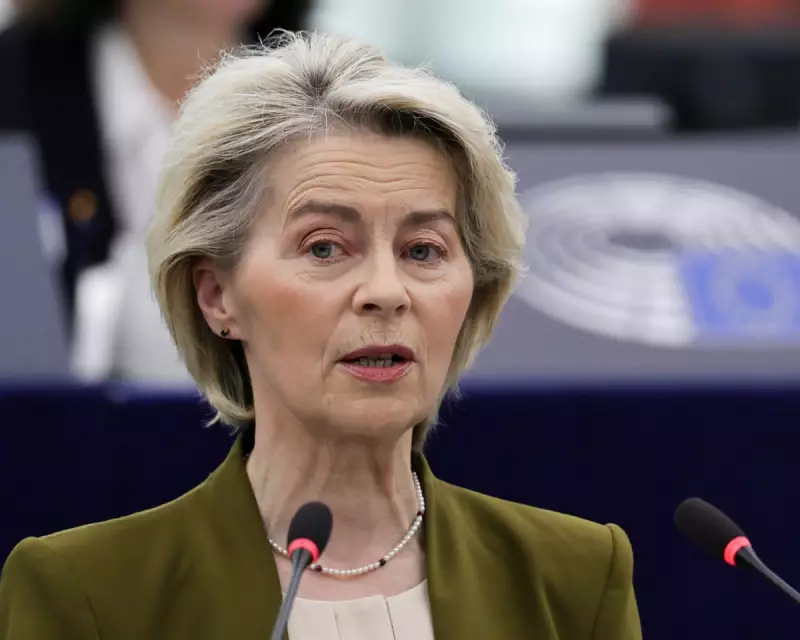
European Commission President Ursula von der Leyen has delivered a powerful warning against the unilateral carving up of Ukraine, declaring that changing borders by force would open the door to future wars across the continent.
Stark Warning Against Border Changes
Speaking during a crucial debate on Ukraine at the European Parliament in Strasbourg, von der Leyen stated that Russia shows no genuine willingness to end the conflict and continues to operate with a mindset unchanged since the 1945 Yalta conference that shaped the post-war world order.
The EU leader made clear that borders cannot be changed by force and any legitimisation of such actions would create dangerous precedents. "If today we legitimise the undermining of borders, we open the doors for more wars tomorrow, and we cannot let this happen," she told lawmakers.
European Concerns Over US Peace Efforts
Von der Leyen described Donald Trump's peace efforts as "a starting point" but emphasised that Europe has significant concerns about details in the original 28-point US-Russian plan. The proposal initially demanded Ukraine cede the entire Donetsk region to Russia, including areas currently under Ukrainian control.
Although some of the most Russia-friendly demands have since been removed, and President Trump has retreated from his Thanksgiving deadline, key sticking points remain with little sign of progress.
The situation was described as volatile and dangerous by von der Leyen, who nevertheless saw "an opportunity here to make real progress." She stressed the importance of maintaining pressure on Russia, stating "so far we have seen no signs from Russia of true willingness to end this conflict."
Frozen Assets and Security Guarantees
In significant developments, von der Leyen promised the European Commission would present a draft legal proposal on using Russia's frozen assets to fund Ukraine in 2026 and 2027. This comes as EU leaders failed to endorse the idea last month due to legal concerns from Belgium, which hosts approximately €183 billion of Russian sovereign wealth - representing two-thirds of the worldwide total.
The pressure on European leaders has intensified with Trump's proposal for the US to take 50% profits from a venture to rebuild Ukraine using $100 billion from frozen Russian assets. The US also wants Europe to contribute $100 billion to the reconstruction investment fund.
Von der Leyen reiterated her support for using frozen assets, stating "I cannot see any scenario in which the European taxpayers alone will pay the bill." EU leaders are expected to discuss the frozen assets question next month as they work to secure funding for Kyiv from 2026-27, with Ukraine expected to run out of money from next spring.
The Commission President also emphasised that Ukraine requires robust, credible and long-term security guarantees and opposed any limits on Ukraine's armed forces that would leave the country vulnerable to future attacks.
Forcibly Deported Children and War Crimes
Another key European priority highlighted by von der Leyen is the return of Ukrainian children forcibly deported to Russia. She announced she will host an international conference on the issue in 2026, noting "There are tens of thousands of boys and girls whose fate is unknown, trapped in Russia by Russia. We will not forget them."
Ukrainian authorities have identified nearly 20,000 children unlawfully deported or forcibly transferred to Russia since the full-scale invasion began in 2022. According to Ukrainian organisation Bring Kids Back, only 1,835 children have returned from deportation, forced transfers and occupied Ukraine.
Russian President Vladimir Putin is wanted for war crimes by the International Criminal Court specifically concerning these child abductions. The original 28-point peace plan had proposed a full amnesty for all parties involved in the conflict.
The discussions occurred as EU foreign ministers held a hastily arranged video conference on the situation, underscoring the urgency with which European leaders are approaching the volatile peace negotiations.





